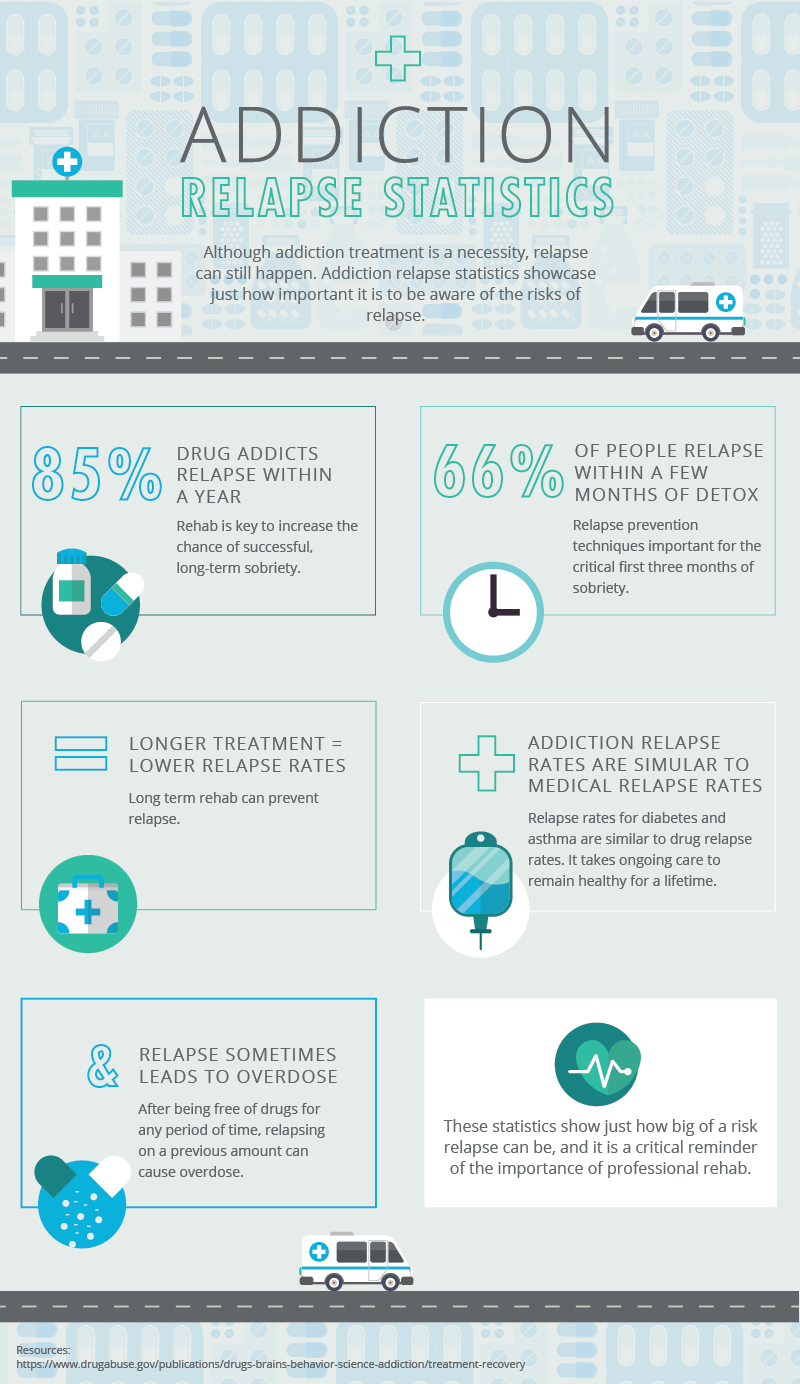Managing Triggers And Desires Message Drug Rehabilitation
Managing Triggers And Desires Message Drug Rehabilitation
Blog Article
Article Developed By-Bojesen Aguirre
You've completed Drug rehabilitation and taken a significant action in the direction of a healthier way of living. Today, encountering triggers and yearnings post-rehab can be a challenging journey. Just how do you browse through these moments without jeopardizing your development? Comprehending the methods to manage triggers and food cravings is crucial in keeping your soberness. Allow's discover reliable ways to deal with these obstacles and protect your newly found dedication to living a drug-free life.
Determining Triggers and Yearnings
To effectively manage your triggers and desires, start by acknowledging the scenarios or feelings that lead to your need to use. Take a moment to reflect on what scenarios or feelings motivate your desires. Is it anxiety, boredom, social situations, or particular places? By pinpointing these triggers, you can better prepare yourself to deal with them.
Triggers can be both inner, such as unfavorable emotions or physical discomfort, and exterior, like being around individuals that use materials or checking out a specific location.
Take Free Rehabs in costa mesa 92868 of patterns in your cravings-- are they a lot more regular at particular times of the day or in reaction to particular occasions?
Building Healthy Coping Strategies
Recognizing your triggers and desires is the primary step towards building healthy coping methods to manage them properly. Once you know what circumstances, emotions, or people activate your desires, you can start creating a strategy to address them.
One reliable technique is to change negative actions with positive ones. As an example, if anxiety triggers food cravings, practicing relaxation techniques like deep breathing or reflection can aid. Engaging in exercises such as exercise or going with a stroll can additionally be a terrific way to manage desires.
An additional vital element of building healthy and balanced coping approaches is to create an encouraging setting. Surround yourself with individuals who understand your journey and can give support and accountability. It's important to develop boundaries with people who may not support your healing.
Additionally, creating a routine that includes healthy habits like routine exercise, correct nourishment, and enough sleep can assist you remain on track and decrease the likelihood of experiencing triggers and cravings.
Looking For Assistance and Responsibility
Creating a network of helpful individuals that can offer motivation and hold you accountable is important in managing triggers and food cravings efficiently. Choose good friends, member of the family, or a support group who comprehend your journey and can supply advice when you deal with challenging situations.
Having somebody to talk to throughout moments of lure can make a significant distinction in remaining on track with your healing. Accountability companions can help you remain focused on your objectives and remind you of the reasons that you chose to seek assistance in the first place.
They can also help in creating an organized plan to deal with triggers and yearnings, such as developing alternate activities or dealing systems to replace need to utilize drugs. Routine check-ins with your support group can supply reassurance and inspiration, assisting you feel less separated in your recovery journey.
Conclusion
Keep in mind, recognizing and managing triggers and food cravings after Drug rehab is a crucial part of maintaining sobriety.
By recognizing your triggers, constructing healthy and balanced coping strategies, and seeking support from loved ones or support groups, you can navigate via challenging moments and stay focused on your sobriety goals.
Bear in mind, you aren't alone in this journey, and with the right tools and support, you can get rid of lures and live a satisfying, drug-free life.
Remain https://www.webmd.com/mental-health/addiction/news/20211014/cdc-reports-record-high-12-month-drug-overdose-death-toll and maintain moving on.
